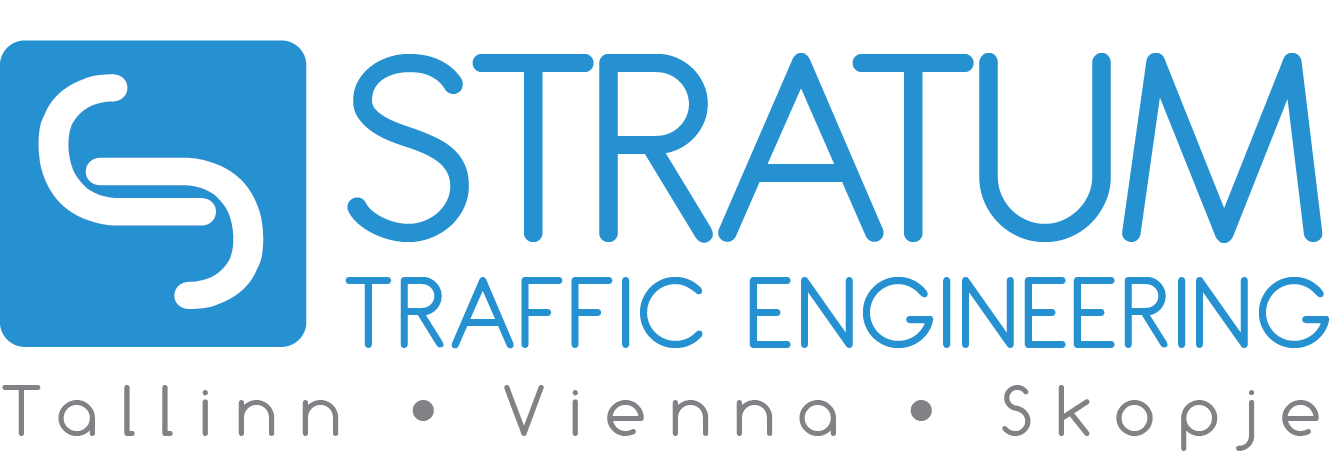
STRATUM TRAFFIC Talks: Interview with Prof. dr. sc. Nikola Krstanoski – Car sharing has very low chances to be accepted and used in Macedonia
In 2017 we are announcing a new category on our web page called the “Stratum Traffic Talks”. It represents our pleasure to share the best interviews and from senior ITS professionals, University professors, Traffic engineers, and other proven professionals from the ITS (Intelligent Transport Systems), and traffic engineering industry.
We open this “Stratum Traffic Talks” with Dr. Nikola Krstanoski, a regular Professor in transport engineering at the Faculty of Technical Sciences in Bitola, Macedonia.
1. STRATUM: We’ve been introduced that Skopje citizens will face changes at public transport in 2017. So far, what are the results of implementing e-ticketing at JSP Skopje?
NK: There are three public transport operators in Skopje: one public company JSP Skopje and two private operators. JSP Skopje holds about 75% of the public transport market.
JSP Skopje started the implementation of the smart ticketing system at the beginning of 2016. Initially, it was planned as an integrated system for all three operators, but the City of Skopje has postponed the implementation of the system for private operators. Finally, at the beginning of this year (2017) the private operators have been included into the smart ticketing system.
The implementation of the system has had a number of beginner’s problems. Initially, there was no option for passengers who had to transfer from one line to another. They had to pay twice the full price of the ticket. Also, public transport users have been accepting the new system with reluctance.
The private operators, that now are fully included into the integrated public transport system, found themselves with some lost privileges and reduced profit, so right now they pressure the local government in other to get more money from the common fund.
The faculty of Technical Sciences in Bitola together with the Faculty of Traffic and Transport Engineering from Belgrade University did a project five years ago, how to build integrated quality public transport service. This has been the base for the implementation of the integrated smart ticketing system. However, the local government in Skopje made some substantial changes to the proposed project results, and now they find themselves in great difficulties how to deal with the problems of a function of the public transport.
2. STRATUM: In your opinion, how can apps be integrated for different Transport providers such as public Transport, railways, taxis and long distance buses?
NK: I’ve been thinking about this idea (“Mobility as a service”) for some time now. Moreover, our Faculty was part of a consortium who submitted a proposal to the EU Commission a project within the HORIZON 2020 call.
The proposal was approved in the first phase, but just a couple of days ago, information came that the project was not approved in the second phase.
Of course, the existing smart ticketing and AVL public transport system can be part of much wider transport service to users.
3. STRATUM: The rapid growth of car sharing is expected to even influence the impact on new-car sales in 2021. How could car sharing be implemented in MK?
NK: Knowing the cultural characteristics and the mentality of the Macedonian people, my opinion is that the car sharing has very low chances to be accepted and used in Macedonia.
Also, there are major objective obstacles. For examples, there are very few companies with a big number of employees that could motivate their workers to go to work together with one car. Or, few employers or local governments are willing to give incentives in other to promote this type of transport.
However, it is interesting that car sharing scheme works by itself when it comes to intercity travel. Usually, young people post on internet information that they travel from one city to another and they ask somebody to join in order to share the costs. There is no official information on this but it does exist.
4. STRATUM: At the end, which traffic Management systems are already implemented on MK first Class road network? How could respective subsystems be integrated within traffic Management platform?
NK: I cannot give much information on this. But to my best knowledge, there is no well-built road network management system, or it may exist on paper only, but nothing can be seen in everyday life. What I see on terrain, the maintenance of the roads is very bad, signalization is also bad, winter maintenance very bad etc.
Short Bio of Dr. Krstanoski

Prof. dr. sc. Nikola Krstanoski
Dr. Nikola Krstanoski was born in 1960 in Bitola, Macedonia. He earned his doctoral degree at the University of Pennsylvania in 1996, and his Master of Science degree in engineering from the same University in 1991. From 1996 up to date, Dr. Krstanoski works as a Professor in transport Engineering at the Faculty for Technical Sciences in Bitola.
The main focus of the scientific and educational work of Dr. Krstanoski is on the urban transport systems, public transport systems, and the sustainable mobility issues.
Dr. Krstanoski has published more than 40 scientific and professional articles in international and national journals. He has been leading project investigator or has taken part in more than 20 international and national projects in the field of urban transport systems.
-THE END-
